Meet the 2018 Hollings and EPP Scholars!
By Kathy Broughton and Elizabeth Weinberg
September 2018
Each year, NOAA's Office of National Marine Sanctuaries hosts several undergraduate Hollings and Educational Partnership Program (EPP) scholars at sites across the National Marine Sanctuary System. Working with sanctuary staff, these students gain practical training experience through NOAA-related science, research, technology, policy, management, and education activities.
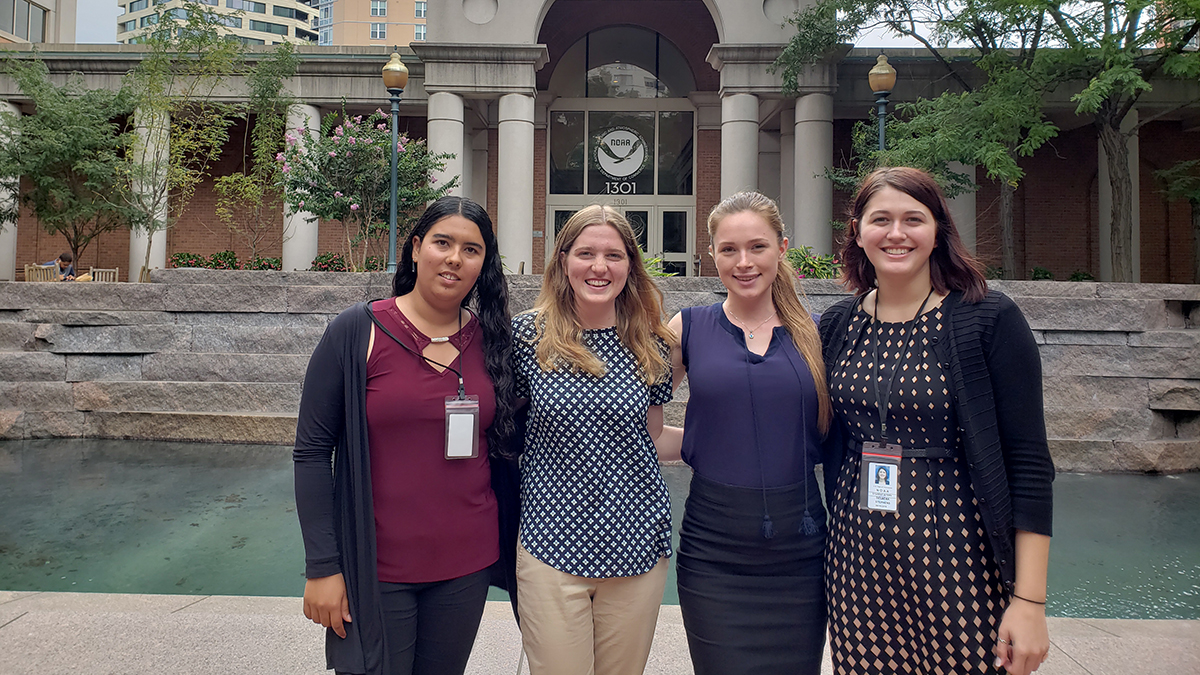
These two scholarship programs are designed to prepare students for careers as environmental scientists and educators, and to increase public environmental and ocean literacy. The Educational Parternship Program with Minority-Serving Institutions supports the training and graduation of STEM students from traditionally underrepresented minority communities. The Ernest F. Hollings Scholarship provides academic assistance and paid internships to undergraduates in NOAA-related science, policy, and education fields. With such crucial goals, it's no wonder that the scholarships attract some stellar students – and we're excited to introduce you to this year's cohort whose projects were with the Office of National Marine Sanctuaries!
Interested in these scholarships? Learn more about the Hollings Scholarship and the EPP Scholarship.
Julie Chase – Hollings Scholar
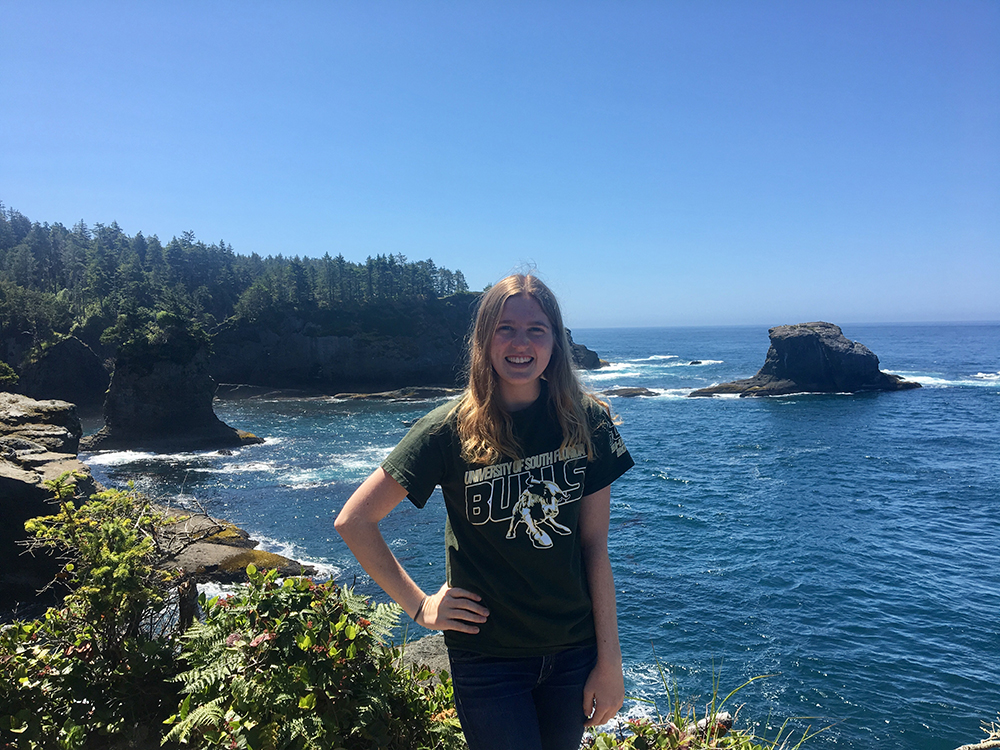
Julie Chase is a senior at the University of South Florida majoring in marine biology with a minor in chemistry. She is also pursuing a Master of Arts in teaching through the Science Teacher Accelerated Master’s Program at USF, funded by the Robert Noyce Scholarship Program. This summer, Chase worked at Olympic Coast National Marine Sanctuary planning and leading three Junior Oceanographer summer camps for students aged five through 12. Themes included “Make No Bones About It,” which focused on the diversity of marine invertebrates, and “Oh the Places We’ll Go,” focused on different habitats within the sanctuary. Chase plans to become a high school biology or chemistry teacher, and her internship at Olympic Coast gave her hands-on experience in the classroom and strengthened her desire to teach.
Brianna Craig – Hollings Scholar
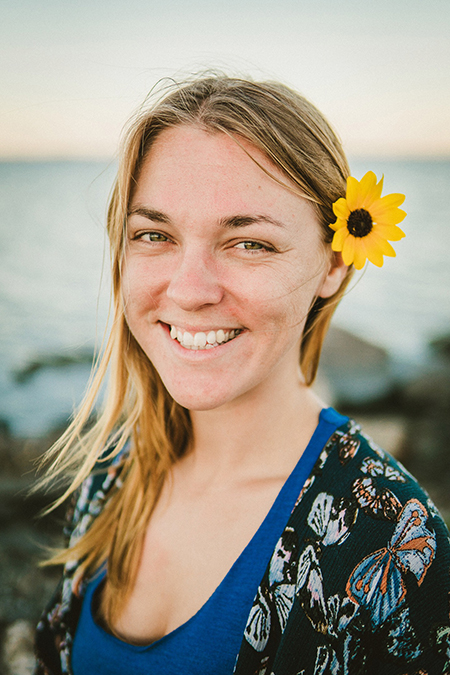
Brianna Craig studies marine science at the University of Hawai’i at Hilo. As a Hollings Scholar, she spent the summer of 2018 working in Papahānaumokuākea Marine National Monument in the Northwestern Hawaiian Islands. There, she used three-dimensional reconstruction techniques to characterize shallow-water reef habitats. Working under her mentors Dr. Randall Kosaki, Dr. Atsuko Fukunaga, and Dr. John Burns, Brianna used ArcGIS and the Benthic Terrain Modeler tool to compile habitat complexity data for 86 30-meter reef transects that span across the reefs surround the Northwestern Hawaiian Islands, from French Frigate Shoals to Kure Atoll. These metrics will help the monument with its goal of long-term monitoring, protection, and perpetuation of these remote ecosystems. Working in the Office of National Marine Sanctuaries has been a dream of Brianna’s since she first learned about the pristine marine ecosystems of Papahānaumokuākea Marine National Monument. After spending the summer studying these reefs, Brianna intends to continue working on characterizing the biogeographical distribution of corals in the monument for her senior thesis, and then will pursue her master’s in tropical conservation biology and environmental science at UH Hilo.
Grace McDermott – Hollings Scholar
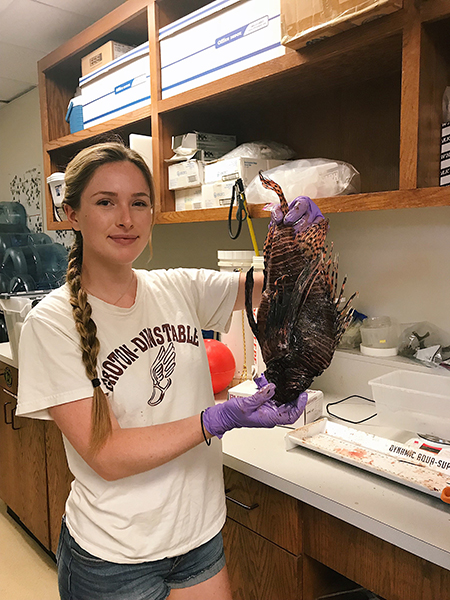
A senior in the marine science program at the University of Maine, Grace McDermott interned this summer at the Flower Garden Banks National Marine Sanctuary headquarters office in Galveston, Texas. Mentored by Dr. Michelle Johnston, McDermott and fellow intern Rebekah Hernandez undertook a project creating coral identification keys for repetitive photostations in the East and West Flower Garden Banks. These images are part of the sanctuary's long-term monitoring program. McDermott then analyzed images taken by repetitive photostations on the West Flower Garden Bank in 1989 and 2017 to measure the difference in coral percent cover within the 28-year span. Because McDermott is hoping to pursue a career in coral reef ecology, her internship at Flower Garden Banks National Marine Sanctuary supplied her with the perfect opportunity to learn and gain valuable experience.
Delaena Stephens – EPP Scholar
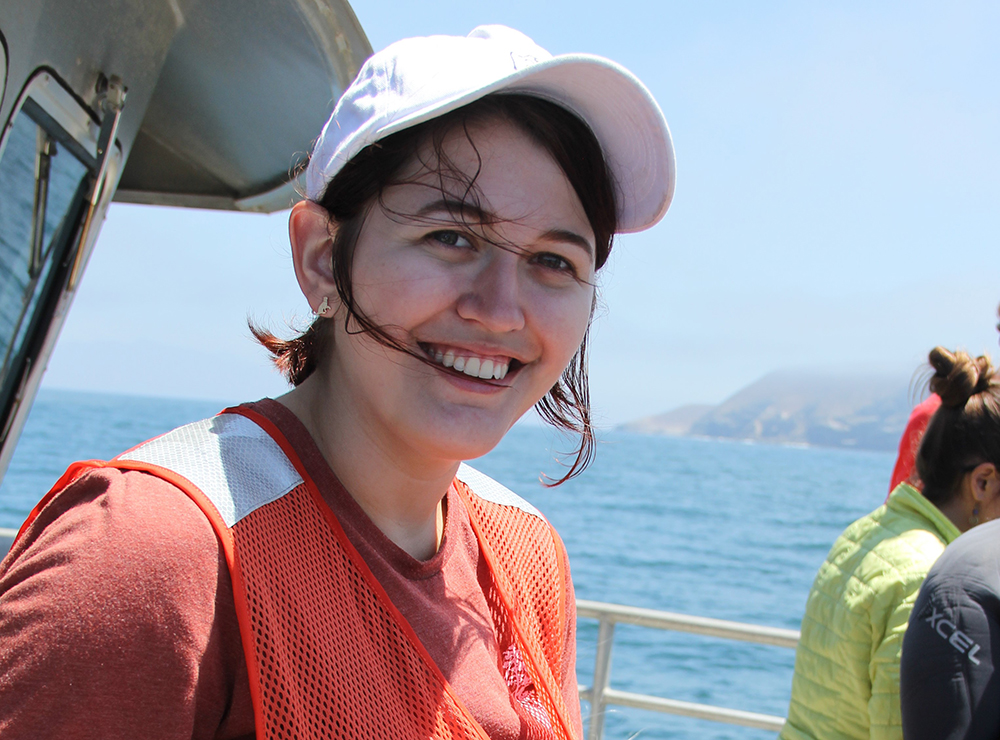
Delaena Stephens is a biology major at the University of La Verne. She spent the summer compiling an inventory of soniferous, or sound-producing, species in Channel Islands National Marine Sanctuary. Working under marine ecologist Kathy Broughton at NOAA Office of National Marine Sanctuaries Headquarters in Silver Spring, Maryland, Stephens explored her interest in anthropogenic ocean noise and acoustically active species. With the assistance of Channel Islands National Marine Sanctuary research staff, Stephens collected acoustic information on the species in the sanctuary. The inventory includes information regarding sound production, mechanism of sound production, sound sensitivity, behavioral and functional contexts of sound production, and activity and behavior within the sanctuary. This information supports the Office of National Marine Sanctuaries’ Noise Team’s efforts to better understand the natural soundscape of national marine sanctuaries and how anthropogenic noise might negatively affect the sanctuaries’ living resources.
Lina Zubieta – Hollings Scholar
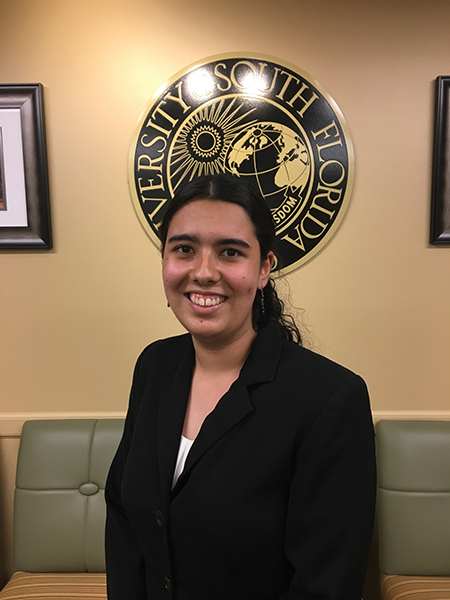
Lina Zubieta is a student at the University of South Florida pursuing a marine biology degree and a business management certificate. She is interested in obtaining a master’s in environmental management and an MBA. Her summer project consisted of conducting a two-part survey focusing on the socioeconomic impact and customer service satisfaction in the Alpena Region, specifically focusing on the Alpena Shipwreck Tours and NOAA’s Great Lakes Maritime Heritage Center. Her mentors were Dr. Danielle Schwarzmann and Mary Tagliareni. This experience taught Zubieta the unique aspects of doing socioeconomic research and some of the challenges of successfully managing a sanctuary. The information derived from her research will help managers in Thunder Bay National Marine Sanctuary make decisions on improving visitor services.
Kathy Broughton is a marine ecologist for NOAA’s Office of National Marine Sanctuaries. Elizabeth Weinberg is the social media coordinator and writer/editor for NOAA's Office of National Marine Sanctuaries.

